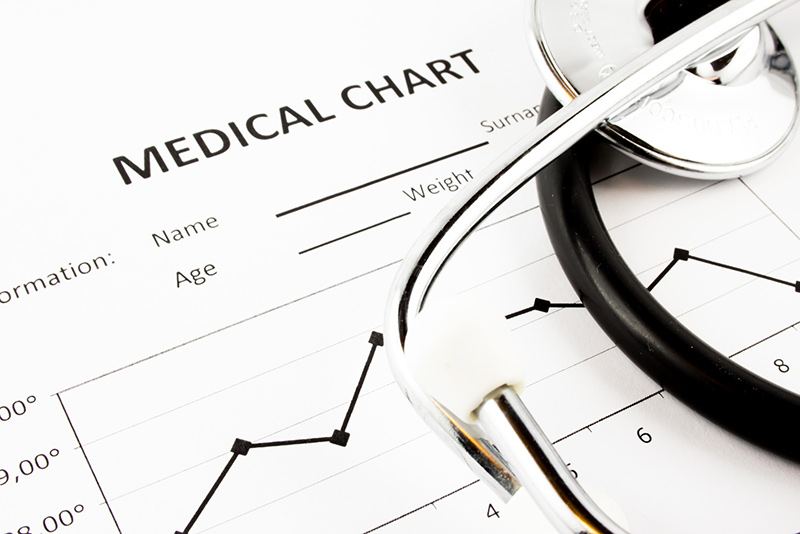Medical charts are of great importance both from a medical and legal perspective. The medical chart is a comprehensive record of a patient’s medical history and clinical information. Details in the chart include demographics, vital signs, diagnoses, medications, surgeries, treatments, allergies, lab results, imaging studies, immunization data and so on. While it helps healthcare providers make effective decisions regarding patient care, the medical record provides the required legal evidence to attorneys handling personal injury, medical malpractice, workers’ compensation and disability cases. Whether for medical or legal purposes, the review of medical records provided by a medical chart review company is of utmost significance.
Medical records analysis or review involves the comprehensive evaluation and analysis of all details provided in the medical chart. The review provides a clear understanding of the quality and timeliness of medical care the patient received. The medical review solutions provided by a chart review company are a great support for law firms, case chart review firms, medical-legal consultants, insurance firms, physicians and independent medical examiners among others.
What Are the Main Components of a Medical Chart?
- Patient demographics, i.e. name, contact information, age and so on
- Developmental history, which includes details such as motor development, social development, emotional development, cognitive development, language development
- Medications
- Allergy information
- Immunization data such as vaccinations and dates
- Surgeries undergone, with relevant dates and reports
- Family history, including the health status of immediate family members, common family diseases and so on
- Obstetric history, such as pregnancies, complications, pregnancy outcomes
- Social history including current as well as past jobs, community support activities
- Habits such as exercise, diet, smoking and alcohol consumption, etc.
Each time the patient visits a healthcare provider, additional details are added to the patient’s chart. These include:
- Chief complaint
- History of present illness
- Physical exam
- Diagnosis and treatment plan
- Orders such as lab, radiology etc.
- Prescriptions
- Progress notes
- Results of lab tests, imaging tests and so on
The Medical Record Review Process
Typically, medical records are reviewed to evaluate the care given to a patient over a particular period of time. They are reviewed for medical necessity or insurance authorizations. Attorneys and insurers use these services when they need to ensure that the standards of practice are met and documented accurately in the records; evaluate the quality of care provided; detail the medical records for case review; and develop quality of care improvement initiatives.
A professional medical review process involves the following steps.
- Identify the medical record components
- Extract patient information and classify it by data type. The information is classified referencing the date of service, type of service, provider of service and place of service information.
- Capture information such as demographics, medical care received, diagnoses and diagnostic procedures, treatment notes, treatment procedures and so on and present the data in a chronological order.
- Identify missing information or records
- Review the data collected for completeness, compliance and accuracy
- Make a list of all the medical records and documents reviewed
- Develop a medical case chronology specific to client case requirements
- Quantify range of motion and outcome assessment study
The Electronic Health Record and Medical Records Review
The EHR or electronic health record has made the record review process disruptive. EHRs have many advantages over the earlier paper charts though reviewers who are used to reviewing paper charts could find EHRs challenging. The electronic health record is a digital form of the patient’s medical chart and makes healthcare information available instantly. The main advantage is that it allows information to be shared quickly and securely among the entire care team including physicians and other healthcare providers such as specialists, imaging facilities, laboratories, emergency facilities, pharmacies and so on. The EHR also enables easy access to evidence-based decision support, medication information, and quality management. Other benefits include the following:
- Reduces medical errors usually caused by illegible handwriting in the chart
- Reduces treatment delays and test duplications
- Enables patients to see their records and make any necessary changes to ensure accuracy
- No concerns such as lost medical charts or inaccessible medical charts
In-house reviewers who lack medical expertise, working at a law firm or insurance company, may find EHRs rather challenging. They could face difficulties such as huge volume of unorganized or unstructured medical data; lack of time to complete the review process within time amid other important tasks; difficulty in successfully processing complicated cases; and identifying missing data or medical records. Whether to sort and organize medical records, arrange them in chronological order, index the records, bookmark and tag them, or prepare a medical summary, attorneys, insurance companies, physicians and other entities that need to work with medical records, would find the support of a medical chart review company really useful.




